“Fine. To brotherhood. How do you say that in Español?”
“You don’t. To brotherhood.”
I think he was waiting to see if I would drink mine before he drank his. I might have played the game, but by now I really did want that drink. I tossed it off, and he thought about playing games and decided it wasn’t worth it, and drained his own glass.
When we finished eating he lit a propane stove and rolled out a pair of army surplus sleeping bags. “All the comforts of home,” he said. “I don’t think you can see the stove from outside.” I went outside, and he was right.
He thought we ought to sleep in shifts. I didn’t, and said so. If they found us we couldn’t possibly shoot our way out. He suggested that some tramp might stumble in.
“And murder us in our sleep? If you tried that on your computer it would laugh at you.”
He thought it over. “Yeah, you’re right,” he said. “It’s not worth the aggravation. The hell with it.”
He took a sleeping pill. I didn’t want one. I told him someday he would take a black pill by mistake. He told me, pleasantly, to go screw myself. I stripped to my underwear and got into the sleeping bag. There were a few dozen things I had to do, and I thought of about half of them before I fell asleep.
It must have been around five-thirty when we sacked out. I put in an honest eight hours. If I dreamed, I wasn’t aware of it. I woke with the sudden thought that I had to go through Bourke and O’Gara’s luggage. There was that thought, instantaneous and undeniable, and then I was awake, and my watch said 3:42.
George was snoring gently. I let him sleep. I opened the back of the van, but it was too dark inside to see anything. I remembered seeing a flashlight hanging on the wall of the barn, and I walked to where I thought it might have been, and it was there. I couldn’t have been more pleased with myself if I had just walked on water.
I climbed up into the truck. It wasn’t snowing and didn’t look as though it had snowed while I was asleep, but somewhere along the line we got the wind we’d hoped for. The driveway looked as though it hadn’t seen a car or truck since the last Indian uprising.
I went through everything we’d thrown in the truck. The wallets, the suitcases, everything. For the most part, I didn’t do more than establish that we had a lot of crud in the truck that deserved burning and/or burial. But I did find a baby camera in O’Gara’s luggage, plus a roll of exposed film. He’d taken one shot of my ID that I knew of, and it was possible that it hadn’t been processed yet. If that was so, then my prints never got to Washington.
As far as I knew, those prints were the only solid link between Richard John Lynch and me.
I don’t know how long George might have slept. When it got to be six in the morning I decided that anything over twelve hours amounted to criminal self-indulgence. I shook him awake. “Get up,” I said. “It’s morning, I’ve got a dozen questions for you.”
“In a while. Oh, God, I think I’ve got a barbiturate hangover. Let me eat something. I feel like hell.”
We ate ham sandwiches and drank milk. He came slowly back to life. While he was doing this I took the garbage that had to be burned outside. I set a garbage can lid on top of the snow and built a little fire in it, feeding the stuff in a little at a time. It was mostly paper. After a few minutes he joined me and contributed a handful of paper. I fed it to the fire without looking at it.
“There’s a well out in back,” he said. “For the clothes and stuff. Get rid of that uniform. I’ve got trucker clothes in back, and keep a suit for afterward. Everything else goes.”
“They’ll look in the well.”
“If they get here. The hell, let ’em. There’s nothing traceable, is there?”
There wasn’t, and it was impossible to dig in the frozen ground. We uncovered the well, threw a lot of clothing into it, and piled snow on top. Back in the barn, I started in on my questions.
“First of all, the route. Do we take the Mississippi Valley south or cut east first?”
“East. It’s longer, but I feel better about it.”
“All right. What kind of roads? Not turnpikes or main roads, obviously, but won’t we be conspicuous on back roads?”
“We would. That’s why we take the pikes.” He unfolded a Shell map of the country that just showed major highways. “Straight east through Wisconsin, pick up the Wisconsin freeway south of Milwaukee. South on that, onto the Belt around Chicago. Then there’s one stretch of turnpike through Illinois and Indiana and Ohio and on across Pennsylvania all the way to the coast. We don’t go all the way, we pick up the Penn-Can and head south. It takes us—”
“How can we do that?”
“Easy. We take turns driving and—”
“There’s a weighing station at every turnpike entrance. We have to show papers, we need all sorts of invoices and crud—”
“We’ve got them.”
I looked at him. “You do your homework, don’t you?”
“You betchum. Hang on, I’ll show you.”
He went to the back of the barn and returned with a manila envelope. He spilled it out on the ground, and he had everything but a sweepstakes ticket. There were invoices and bills of lading and chauffeurs’ licenses and membership cards in the International Brotherhood of Teamsters.
“See?” he said. “Turnpikes. They’re fast and easy, and we are the Thornhill Hauling Corp. That’s what it says on the registration and that’s what it’ll say on the truck once we paint her. I’ve got paint, I’ve got stencils. I’ve worked for my million, Paul. We get on that road and we stop for fuel and that’s it. We stop for diesel fuel and change drivers. Period. We roll right on through, we swing along the coast to Orlando and cut west to Tampa and we’re home. There’s even a pretty good road from Orlando to Tampa. I checked, I know. See?”
“I’m impressed.”
“Sometimes I even impress myself. What else?”
“You,” I said. “What’s your cover?”
“Me?”
“You. The last they heard of you was Monday morning when they sent you to Amarillo. You never got there and they never heard from you. You must have something. What?”
“I’m in Guatemala.”
“Huh?”
He grinned. “You heard right. I called the office from Chicago Monday and begged out of Amarillo. I told them something hot was breaking and I had to go to Miami. I called in again from Pierre when I went to collect street signs. I told them I was in Miami and had to leave the country.”
“Suppose they kept a record of the call?”
“No way to trace. They could have traced it at the time, but I know standard procedure and they wouldn’t. I called into a line that just records messages for playback later.”
“How does Guatemala fit in?”
“I go there when this is over. I have something to do there, as a matter of fact. It’ll take two days, but I can make it look as though it took that many weeks. Then I come back from Guatemala, and I say I’ve been to Guatemala, and by God I have. I’ll even have a souvenir for my secretary. Don’t teach Grandma to suck eggs, Paul.”
We wiped the truck down and spray-painted the parts of the box with Sprague’s markings on them. He had a battery-operated compressor to simplify things, and his paint was a close enough match for the van’s body color so that we didn’t have to do the whole thing. While the body dried we changed the color of the cab from red to green. Then we laid stencils on the sides of the box and labeled it Thornhill. We altered the state markings and added weight information to fit the papers we carried. Finally, we took off the South Dakota plates and substituted Illinois ones. The old plates went in the cab to be dumped in the first deep water we crossed. The stencils were cardboard. We burned them. The paints and brushes and the compressor were the sort of a thing a man might keep in a barn, so they stayed there.
Читать дальше
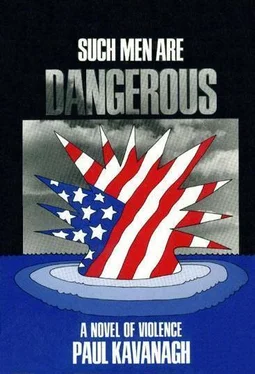
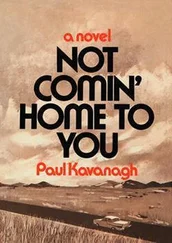

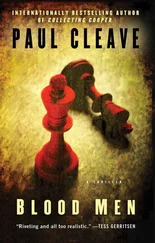
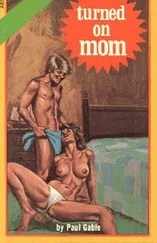
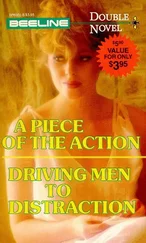
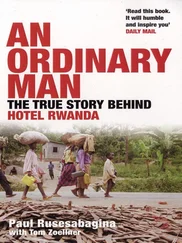
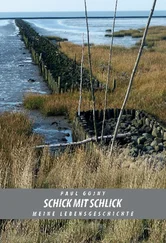
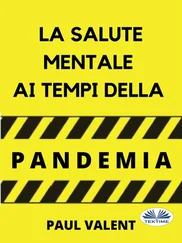
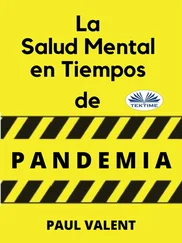
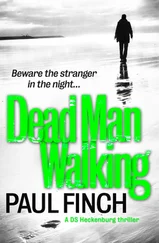
![Paul Finch - A Wanted Man [A PC Heckenburg Short Story]](/books/702381/paul-finch-a-wanted-man-a-pc-heckenburg-short-sto-thumb.webp)
